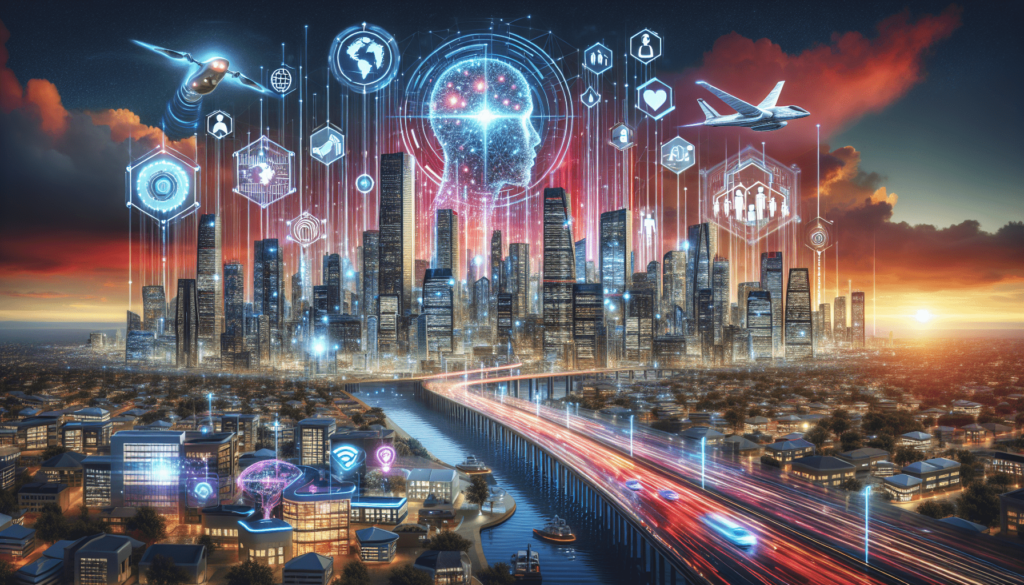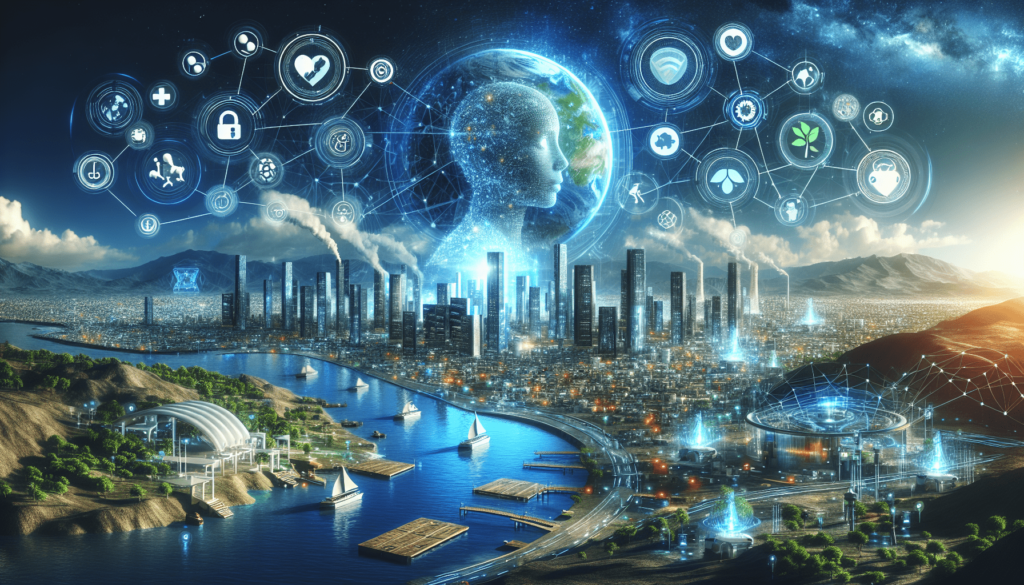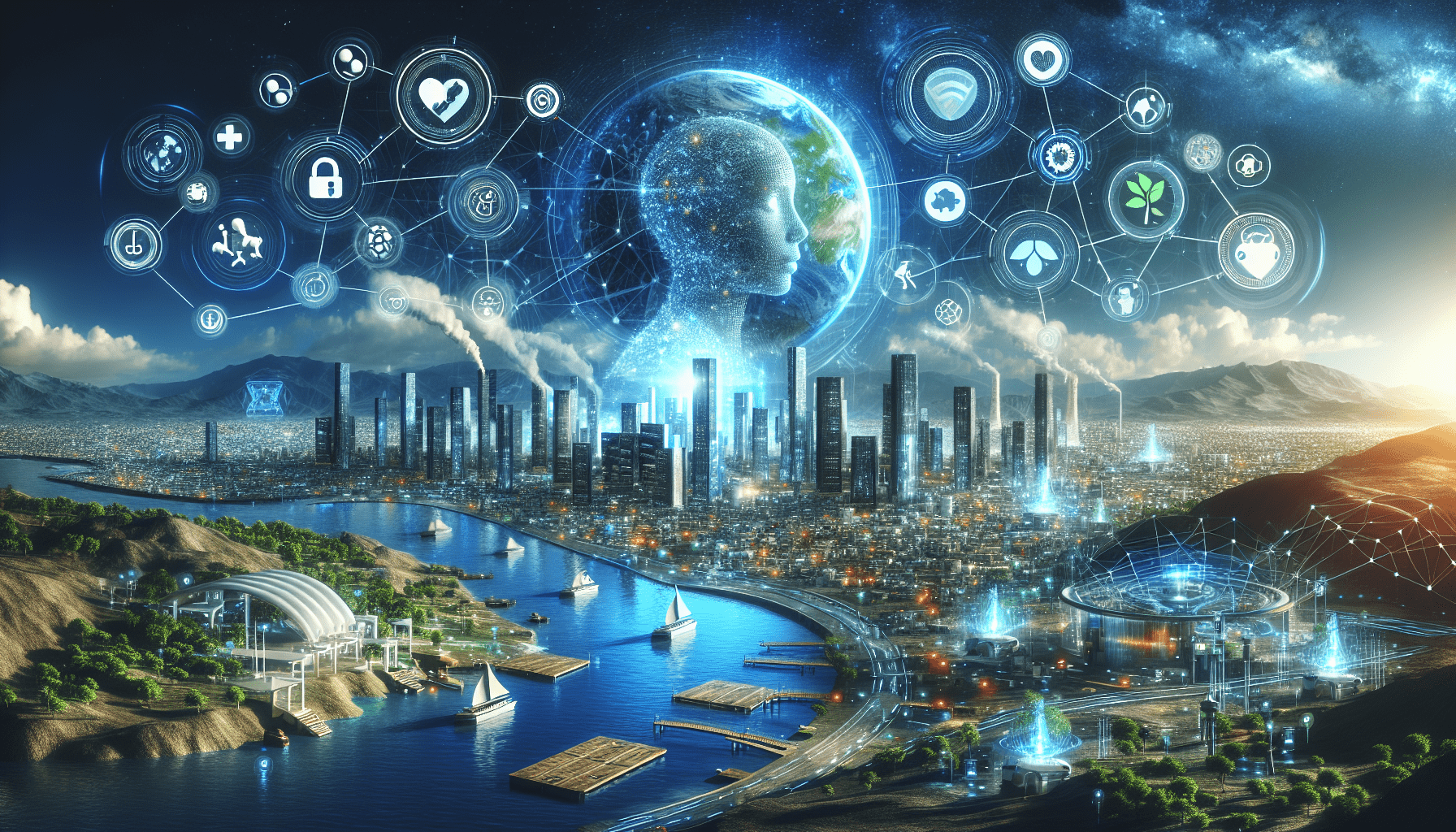Have you ever wondered how artificial intelligence (AI) can tackle some of the most intricate challenges our world faces? From Climate change to poverty alleviation, AI has the potential to offer innovative solutions. In this article, we explore the various ways in which AI can be harnessed to solve complex world problems, shedding light on its immense possibilities and the positive impact it can have on our society. Discover how AI’s analytical power and problem-solving capabilities can revolutionize the way we address these global issues, paving the way towards a brighter future for all.

Predictive Analytics
Predictive analytics is a powerful tool that harnesses the vast amount of data available to identify patterns and trends that can help us make informed decisions. By analyzing historical data, predictive analytics allows us to anticipate future outcomes and take proactive measures. For example, in the business world, predictive analytics can be used to forecast customer behavior, enabling companies to optimize their marketing strategies and maximize profitability. This technology is also invaluable in the financial sector, where it can help predict market trends and guide investment decisions. By leveraging predictive analytics, organizations can gain a competitive edge and achieve greater success.
Data Processing and Analysis
With the exponential growth of data, processing and analyzing large and complex datasets has become essential for businesses and organizations across various industries. Data processing involves transforming raw data into a usable format, while analysis focuses on extracting actionable insights from that data. Through advanced algorithms and machine learning techniques, data processing and analysis can reveal correlations and causations that may not be apparent at first glance. These insights can then be used to guide decision-making and drive innovation. From healthcare to finance to manufacturing, data processing and analysis are revolutionizing the way we understand and utilize information.
Climate Change
Climate change is one of the most pressing challenges facing our planet, and AI can play a significant role in addressing this global issue. By monitoring and predicting climate patterns, AI can help us better understand the impacts of climate change and develop more effective mitigation strategies. For instance, AI can analyze climate data to optimize renewable energy usage, ensuring that renewable resources are utilized to their maximum potential. Additionally, AI can assist in reducing carbon emissions by identifying areas for improvement in various sectors such as transportation and manufacturing. By leveraging the power of AI, we can strive towards a more sustainable and resilient future.
Healthcare
In the realm of healthcare, AI has the potential to revolutionize diagnosis, treatment, and patient outcomes. With the ability to analyze vast amounts of medical data, AI can aid in accurately diagnosing diseases and recommending appropriate treatment plans. Through machine learning algorithms, AI can analyze patient data and identify patterns that may indicate potential health issues even before symptoms emerge. Furthermore, AI can assist in drug discovery and development by analyzing genetic data to identify potential targets for new therapies. Ultimately, by leveraging AI in healthcare, we can enhance patient outcomes and improve the overall quality of care.

Education
AI is transforming the field of education by providing personalized learning experiences tailored to individual students’ needs. Through adaptive learning platforms, AI can analyze student performance data and provide targeted recommendations for areas of improvement. This allows students to progress at their own pace and receive tailored support, ultimately leading to better learning outcomes. AI can also identify learning gaps and provide additional resources or interventions to help students overcome challenges. Additionally, AI can enhance accessibility and inclusivity in education by providing tools and technologies that cater to diverse learning needs. By leveraging AI in education, we can create a more equitable and effective learning environment for all.
Poverty and Hunger
AI has the potential to address systemic issues that contribute to poverty and hunger by optimizing resource distribution and targeting aid and support. By analyzing data on economic indicators, population demographics, and infrastructure, AI can help governments and organizations allocate resources more effectively. This can lead to more equitable distribution of resources, ensuring that those in need receive the support they require. Additionally, AI can identify underlying causes of poverty and hunger, such as lack of access to education or healthcare, and provide insights for interventions that can address these issues at their root. Through AI-powered solutions, we can work towards a world where poverty and hunger are no longer pervasive problems.
Conflict Resolution
By analyzing historical data and patterns, AI can provide valuable insights into potential conflicts and help find diplomatic solutions. With its ability to process vast amounts of data, AI can identify trends and patterns that human analysts may miss, thereby assisting in predicting and preventing conflicts. By understanding the underlying causes and dynamics of conflicts, AI can help facilitate dialogue and negotiation, ultimately leading to peaceful resolutions. Additionally, AI can assist in identifying areas of tension or vulnerability and propose measures to mitigate the risk of conflict. By harnessing the power of AI, we can strive towards a more peaceful and secure world.
Cybersecurity
In an increasingly interconnected world, cybersecurity has become a critical concern. AI can help identify and prevent cyber threats by continuously monitoring networks and detecting suspicious activities. Through machine learning algorithms, AI can learn from historical data to recognize patterns associated with cyber attacks and respond in real-time to mitigate risks. AI can also enhance network security by identifying vulnerabilities and recommending measures to strengthen defenses. Furthermore, AI can play a crucial role in protecting sensitive data by implementing sophisticated encryption and authentication techniques. With AI-powered cybersecurity solutions, we can safeguard our digital infrastructure and protect ourselves from ever-evolving cyber threats.
Transportation and Logistics
AI has the potential to revolutionize transportation and logistics by optimizing routes and schedules, reducing congestion and emissions, and enhancing supply chain efficiency. Through real-time data analysis, AI can identify the most efficient transportation routes, considering factors such as traffic conditions and weather forecasts. This can help reduce travel time and fuel consumption, leading to cost savings and a smaller carbon footprint. Additionally, AI can optimize logistics operations by predicting demand patterns and streamlining inventory management, ensuring that goods reach their destinations in a timely and efficient manner. By harnessing AI in transportation and logistics, we can achieve greater sustainability and effectiveness in the movement of goods and people.
Natural Disaster Management
Natural disasters pose significant challenges to communities worldwide, but AI can help mitigate their impact through early warning systems, effective evacuation planning, and disaster response coordination. By analyzing meteorological data, sensor readings, and historical patterns, AI can provide timely warnings and predictions for hurricanes, earthquakes, and other natural disasters. This enables authorities to take proactive measures, such as issuing evacuation orders or mobilizing emergency resources, to protect communities. AI can also assist in planning evacuation routes and identifying safe shelters, ensuring the safety of those affected by disasters. Furthermore, AI can enhance coordination among disaster response teams by providing real-time information and optimizing resource allocation. By harnessing AI in natural disaster management, we can save lives and minimize the devastation caused by such events.
In conclusion, AI has the potential to solve complex world problems across various domains, from predictive analytics and data processing to climate change and healthcare. By harnessing the power of AI, we can unlock new possibilities, enhance decision-making, and drive positive change. However, it is crucial to ensure ethical and responsible use of AI, taking into account considerations such as privacy, fairness, and transparency. By embracing AI as a tool for progress, we can tackle global challenges and create a better future for all.
